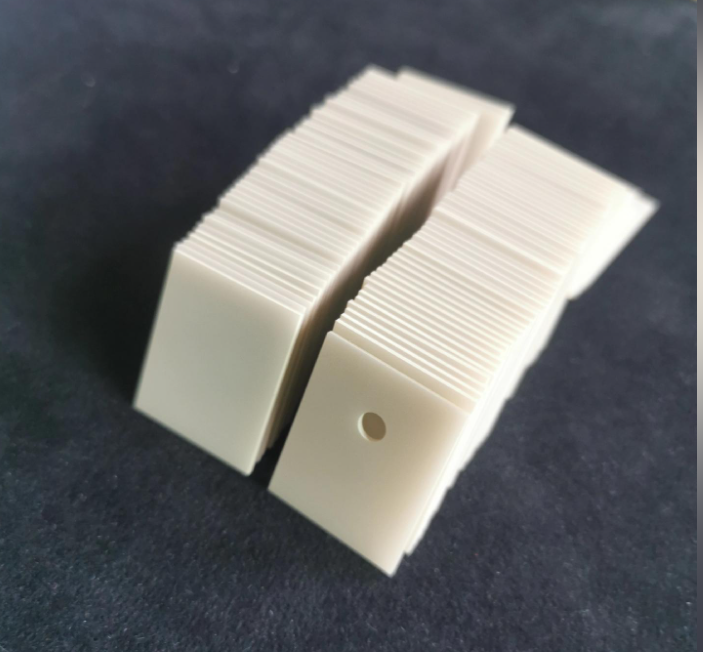Thermal Properties of Common Industrial Ceramics
Thermal Conductivity
Currently, popular thermally conductive ceramics include alumina (Al2O3), aluminum nitride (AlN), boron nitride (BN), Silicon nitride (Si3N4), silicon carbide (SiC), and PCD ceramics.
Among these, Alumina Ceramics are noted for their low cost, high strength, chemical stability, thermal stability, and strong insulation properties. Due to these qualities, Alumina Ceramics are extensively researched and widely used in the industry.
Aluminum nitride is a high-temperature resistant material with thermal conductivity 5 to 10 times that of alumina. It boasts excellent thermal shock resistance and can withstand extreme temperatures up to 2200°C. Additionally, aluminum nitride is resistant to molten aluminum and other molten metals, making it an excellent thermal conductor with a low coefficient of thermal expansion and good thermal shock resistance. Furthermore, aluminum nitride exhibits superior electrical insulation and dielectric properties.

Thermal Insulation
Zirconia (ZrO2) ceramics are inherently high-temperature resistant materials. The sintering temperature of zirconia ceramics can reach up to 1480°C, with a service temperature of up to 1350°C. Due to their slow thermal conductivity, with a thermal conductivity coefficient of 2-3 W/m·K at 20°C, zirconia ceramics are excellent insulating materials. Their resistance to chemical corrosion makes them suitable for manufacturing ceramic insulating crucibles, which are used for melting and refining. Therefore, zirconia ceramics are highly appropriate as thermal insulation materials.
Thermal Shock Resistance
When Silicon nitride and glass are simultaneously heated to 600°C and then immersed in cold water, the glass shatters while the silicon nitride remains unaffected. This demonstrates silicon nitride’s superior thermal shock resistance.
Thermal Expansion Resistance
Alumina and zirconia ceramics are the most common materials in industrial ceramics. However, the scope of industrial ceramics extends beyond these two. Silicon nitride ceramics are known for their high hardness and resistance to high temperatures, making them suitable for environments with rapid temperature changes. silicon carbide ceramics exhibit excellent mechanical properties and good corrosion resistance, maintaining their strength even at high temperatures. Aluminum nitride ceramics, with their electrical insulation and excellent thermal conductivity, are ideal for heat dissipation components. Boron nitride ceramics possess good heat resistance, thermal stability, and thermal conductivity, making them suitable high-temperature insulating materials.
In conclusion, the thermal properties of industrial ceramics such as alumina, aluminum nitride, silicon nitride, silicon carbide, and boron nitride make them valuable in various high-temperature and high-stress applications. Their unique thermal conductivity, insulation, shock resistance, and expansion resistance properties cater to specific industrial needs, underscoring their importance in modern technology and engineering.
 Shanghai Eheng Precision Technology Co.,LTD
Shanghai Eheng Precision Technology Co.,LTD
